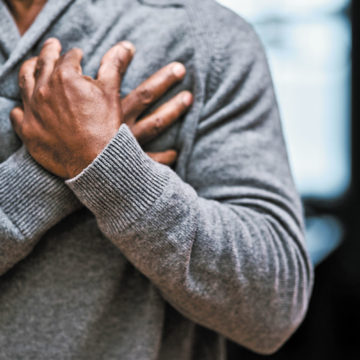
- A drop in temperatures can impact not just your health but your heart as well.
- Because the cold weather causes the body to lose heat rapidly, older people and those with heart disease are advised to keep their heart warm.
- One way of reducing a risk of heart attack in winter is keeping your body moving through any exercise instead of sitting for prolonged periods of time.
As temperatures start to fall, your risk of a heart attack begins to rise. The American Heart Association (AHA) recommends protecting your heart by keeping it warm. This is because the cold weather causes the body to lose heat more quickly, making your heart work extra hard to maintain a healthy body temperature. This is particularly crucial for the elderly who have less body fat and people with heart disease.
You can manage heart health during the winter season by knowing why the cold season is dubbed the heart attack season plus tips to follow to minimize your risks.
Less Exercise in Winter

Though challenging, it’s essential to keep moving when the temperature drops instead of sitting or standing still for a long time, suggests cardiologists Jennifer H. Mieres, MD, FACC and Stacey E. Rosen, MD, FACC. To keep your body active, try pacing the room while on the phone, parking your car away from your office, and doing a 1-minute stretch every hour.
Poor Sleep Habits

Failing to get enough sleep on a regular basis is connected to climbing risks of high blood pressure and heart issues. Low room temperatures in cold weather may interfere with your sleep pattern. Do not oversleep either; too much sleep is also associated with higher heart disease risks, says a study in the European Heart Journal.
For optimal sleep, adjust your thermostat to between 15 and 19 degrees Celsius, per the National Sleep Foundation (NSF). Seven to nine hours of sleep for ages 18 and 64 is recommended.
Elevated Stress Levels

Thanks to stress hormones such as cortisol, adrenaline and inflammatory proteins called cytokines, emotional stress can impact the heart and blood vessels causing the arteries to harden, leading to risk and heart attack.
To manage your stress, meditation and visualization have been proven to decrease anxiety and intensity of congestive heart failure, say Mieres and Rosen. They also recommend looking into reliable websites such as the AHA for strategies in stress management.
Risk of Influenza

Flu viruses are highly contagious and commonly occur during the fall and winter, according to the Centers for Disease Control and Prevention. It can trigger a heart attack in people already at risk for heart disease. Get yourself vaccinated if you have heart disease, or have had a stroke. Besides the flu vaccine, the CDC also recommends taking preventive measures, such as washing your hands often with soap and water especially after being in public spaces. Cover your mouth with a tissue when coughing or sneezing to protect others and throw the tissue after using it. Drink plenty of fluids and stay at home when you are sick except to get medical care.
Overexertion

Strenuous activity increases the heart’s demand for oxygen. Be aware of your risks and limitations especially if you’ve had a heart attack or stroke, warns Dr. Richard Kovacs, a cardiologist at Indiana University Health. Activities such as shovelling, walking briskly in the cold and driving in stormy weather can put added stress on the heart.
If you have to shovel snow, cardiologist Dr. Andrew Freeman advises not to shovel first thing in the morning. Make sure you dress appropriately by covering your hands, head, and mouth, and take a break every 15 minutes to help lessen the load on your heart. And, be aware of the warning signs of a heart attack like shortness of breath and chest discomfort.
Excess Alcohol

Alcohol can make you feel warmer than you really are, making it more dangerous when you’re out in the cold, say cardiologists at Northwestern Medicine. Stick to your limits, stay warm, don’t forget to wear a hat, scarf and gloves, and stay hydrated to retain more body heat.
Source: Reader’s Digest
